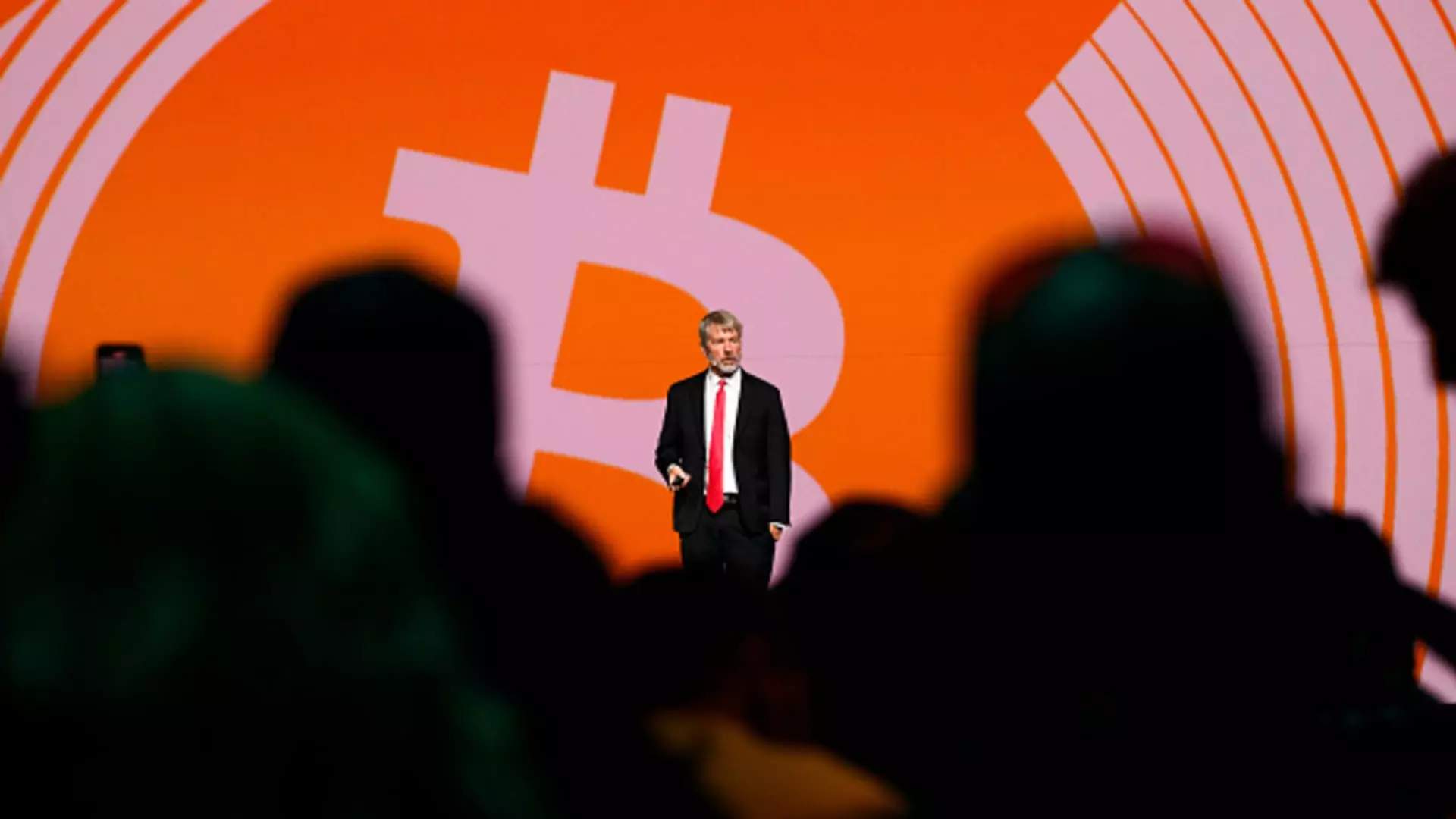The financial landscape is undergoing a seismic shift, with Bitcoin emerging as a formidable player. The landscape once dominated by traditional asset classes is now being peppered with corporate treasuries adopting Bitcoin. The market capitalization of Strategy (formerly MicroStrategy) soaring past $80 billion served as a catalyst, but now the narrative is changing. Companies like Trump Media and GameStop are embracing Bitcoin, but the market is showing skepticism. This reluctance illustrates that despite the allure of digital gold, the broader acceptance remains tepid, and Wall Street is not yet fully on board with the Bitcoin bandwagon.
The ambitious announcement from Trump Media regarding their $2.5 billion Bitcoin investment exemplifies a bold initiative. Yet, less than a week later, shares plunged over 20%. Similarly, GameStop, a beacon of retail trading enthusiasm, saw its stock drop nearly 17% despite revealing a $500 million Bitcoin allocation. These trends indicate that the market is not quite ready to view Bitcoin as an indispensable asset for diversification, especially when newcomers to the Bitcoin game seem to falter.
Insights from the Vanguard
Michael Saylor, Chairman of Strategy, sees these fluctuations as short-lived and maintains a long-term vision for Bitcoin’s utility in corporate finance. Saylor’s unwavering support embodies a belief that Bitcoin can transcend traditional market volatility. He characterizes the recent moves by Trump Media and GameStop as “courageous, aggressive, and intelligent,” marking a pivotal change in how corporations perceive their financial strategies.
At the Bitcoin 2025 conference, Saylor highlighted an explosion of interest in Bitcoin among businesses worldwide, noting initiatives sprouting in regions as diverse as Hong Kong, Korea, and Abu Dhabi. This demonstrates that Bitcoin isn’t simply a financial trend; it’s morphing into a global ideology, with businesses embedding it into their core operations. However, a paradox exists as newcomers struggle while pioneers like Strategy thrive, indicating that entry into the realm of Bitcoin investment is fraught with complexity.
The Political Landscape Influencing Corporate Strategy
Contrasting with prior presidential administrations, the current political climate seems more receptive to Bitcoin’s integration into national finance. Under President Trump, a strategic pivot occurred with the executive order establishing a U.S. Strategic Bitcoin Reserve. This order reflects a shift toward treating Bitcoin as a long-term store of value, supported by federal policy and enforcement agencies. While this policy may well catalyze broader adoption among corporate entities, it raises questions about the implications for Bitcoin’s decentralized ethos.
Furthermore, Vice President JD Vance’s recent outreach to the Bitcoin community perhaps underscores a new political narrative framing Bitcoin as a hedge against not only inflation but also against potential governmental overreach. As governmental bodies embrace Bitcoin, we must critically examine the narratives being crafted. If these powers see Bitcoin merely as a fiscal instrument, where does that leave its foundational principles of individual financial autonomy?
Adoption and Resistance
Despite a growing interest in Bitcoin, reluctance remains in some quarters of the corporate realm. Microsoft’s shareholders recently dismissed a proposal to utilize part of its substantial cash reserves for Bitcoin investment, emphasizing a prevalent conservative approach among established corporations. Such instances highlight a creeping apprehension among companies that have enjoyed stability in traditional investments.
Saylor’s reference to Microsoft as a company that “can’t afford to miss the next technology wave” resonates strongly. These companies risk being sidelined by the rapid evolution of the digital asset landscape. While innovation can be disruptive, it can also yield unanticipated rewards for those audacious enough to embrace risk.
The short-term market reactions accompanying announcements from companies like GameStop and Trump Media may not reflect an inherent cynicism about Bitcoin, but rather a reaction to how these organizations are leveraging the currency to bolster their equity positions. The convertible bond strategies employed by both firms could mirror financial acrobatics that yield benefits later, casting a necessary light on investor psychology amid speculation.
The Future of Corporate Bitcoin Adoption
Saylor’s perspective that there is still no ceiling to corporate Bitcoin accumulation showcases a bullish outlook. Companies entrenched in the Bitcoin ethos see themselves as pioneers in this evolving narrative, committed to scaling their investments tirelessly. His assertion that accumulating Bitcoin will become increasingly challenging speaks volumes about the perceived value of this digital asset among its proponents.
While critics remain cautious about the potential compromise of Bitcoin’s decentralized ideals through corporate and governmental entanglements, Saylor’s notion that a “balance of power” exists provides a counter-narrative. In an age where financial power transitions from institutions to individuals and corporations alike, how this tandem evolves will define the coming years for Bitcoin and the global economy. The journey ahead may be fraught with skepticism, but also ripe with opportunity for those willing to navigate the complexities of an unprecedented financial era.

